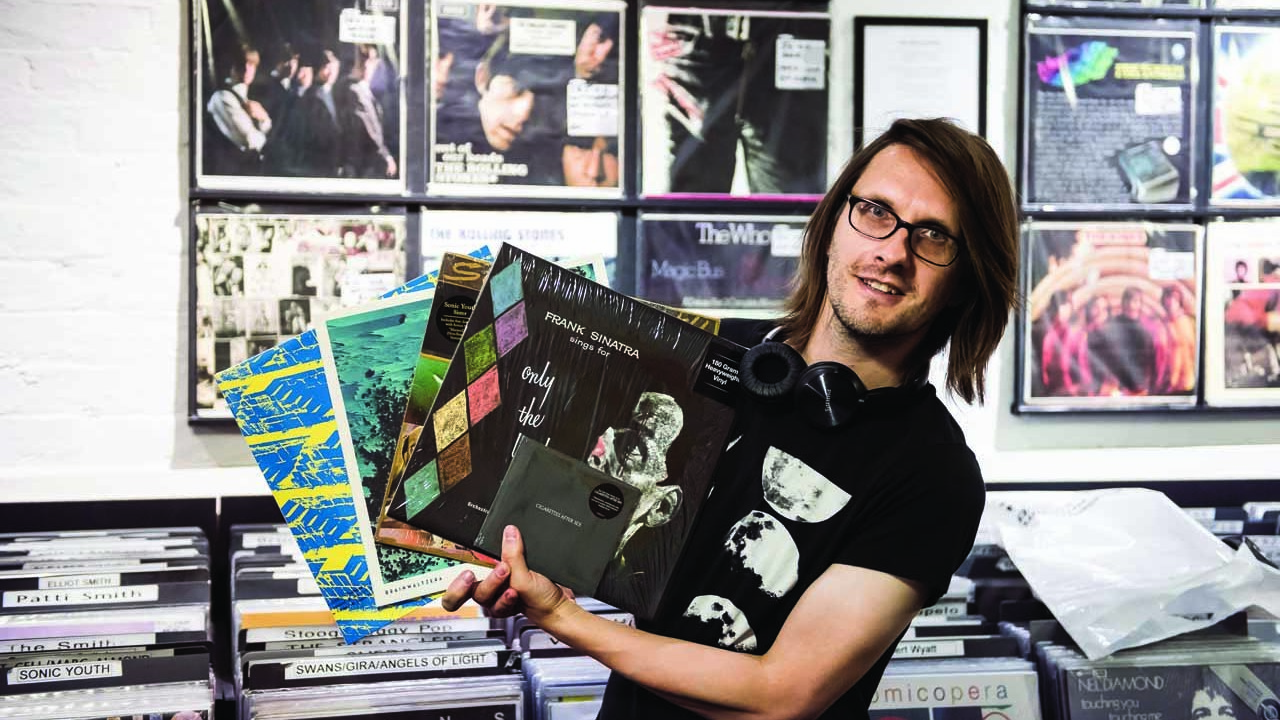It’s difficult to find a record that Steven Wilson doesn’t already have. Not that he isn’t up for trying, mind you. Headphones wrapped around his neck, bespectacled eyes a bit like those of a hawk in hunting mode, he flicks through an enormous stack of Neil Young records, muttering, “Got it, got it, got it…” He moves on to ELO (with the same result), bringing to mind his new album, To The Bone, which draws a lot of inspiration from the progressive pop greats.
“People appreciate good pop,” says Sister Ray owner Phil Barton, smiling. “It’s genius. ABBA’s been flying off the shelves lately.”
Wilson stops suddenly. “There’s ABBA in here?!” he asks, genuinely delighted, and darts over to the ‘A’ stacks. “I don’t have them on vinyl. Maybe I should change that…”
An articulate, thoughtful 49-year-old trapped in a small, skinny teenager’s body, Steven Wilson is just as gloriously nerdy in the flesh as you’d hope – if you’ve followed his career from Porcupine Tree, No-Man and Blackfield through myriad other projects, production/remix credits and, most recently, solo records.
“Yeah, I’m super-nerd,” he affirms amicably, as we ask about his vinyl-cataloguing habits. “Alphabetical, chronological within alphabetical. I know some people do genres, but then there’s always an album where you can’t decide whether it’s this or that.
His Soho trawl with Classic Rock today begins with focused electronica browsing (“I’m one of the world’s biggest Richard D. James/Aphex Twin fans”) but includes punk, soul, jazz, classic rock, Tarantino soundtracks and much more. And he seems to have an encyclopedic knowledge of all of them.
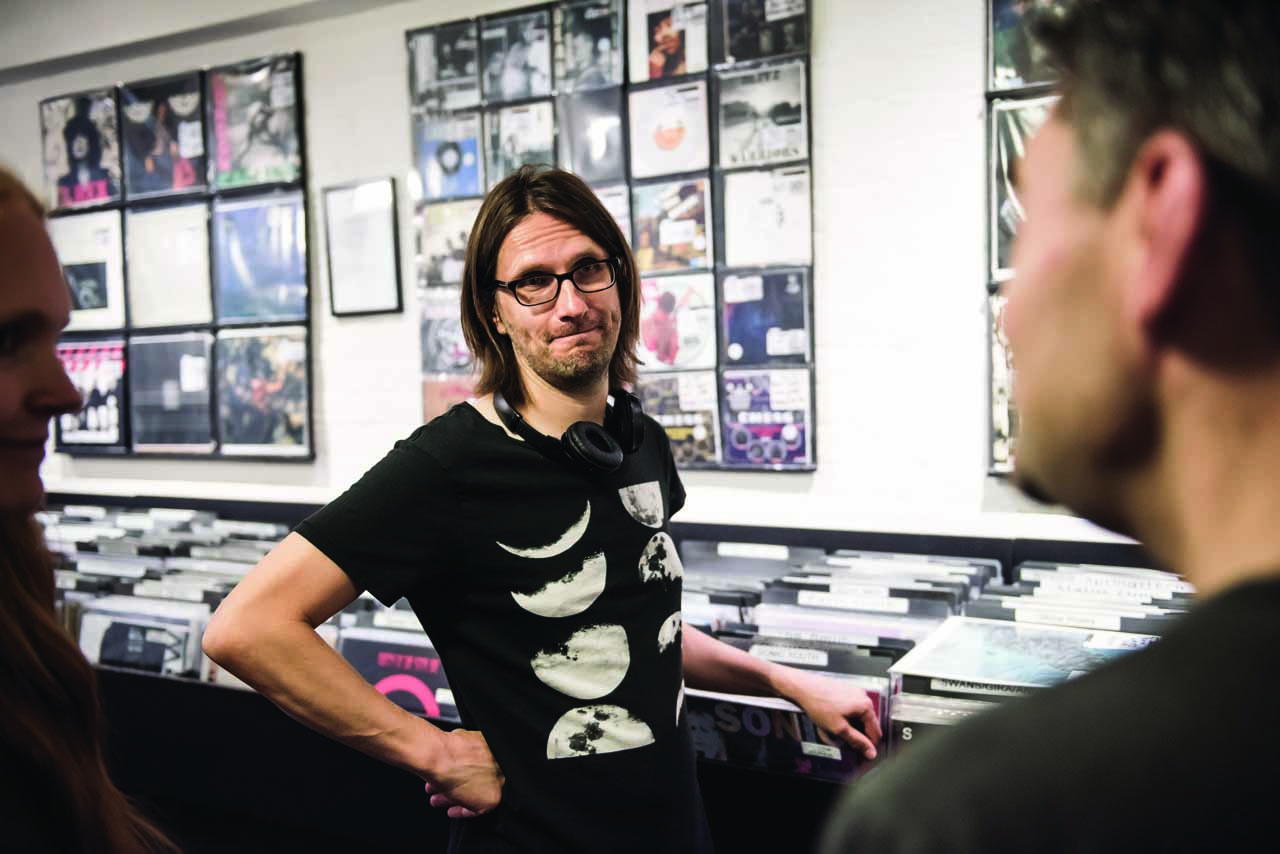
Wilson’s diverse musical taste began with his parents’ record collection while he was growing up in Hemel Hempstead. LPs by Donna Summer, ABBA and The Carpenters sat easily alongside Dark Side Of The Moon and Tubular Bells.
There are two main ‘versions’ of Steven Wilson commonly referenced by the rock cognoscenti. There’s Steven Wilson the modern-day prog darling, who’s mixed/5.1-ed just about every respected progressive act alive (Jethro Tull, Yes, King Crimson, Steve Hackett, Anathema, Opeth, Marillion…), and whose third album The Raven That Refused To Sing (And Other Stories) was something of a love letter to the prog classics. For others there’s Steven Wilson the frontman of now defunct alternative rock band Porcupine Tree.
But then there’s the third, more nuanced Steven Wilson: the guy who’ll sing the praises of obscure, gnarly industrial groups in the same breath as Black Sabbath, Prince, the Damned, NWOBHM, Frank Sinatra… all of which, to greater or lesser extents, has fed into his music over the years.
“There’s definitely a sort of ‘noise’ aesthetic in some of my music, I think,” he muses. “I hope all that stuff comes through.”
Scanning racks of Motörhead, Iron Maiden and Saxon records, he recalls his secondary school days spent listening to NWOBHM. “I loved it. Diamond Head were my favourite band when I was about twelve or thirteen. And the first Iron Maiden album I loved.”
His eyes move to the Industrial stacks, settling on 70s/80s noise pioneers Throbbing Gristle, who sang about such things as rape, torture and Moors murderers Ian Brady and Myra Hindley.
“That’s another of my favourite bands,” he enthuses. “The Second Annual Report is their first album. It’s the one I bought first and the hairs just stood up on the back of my neck. I remember soon after I met [Opeth frontman] Mikael Åkerfeldt, he was trying to get me into all the Swedish death metal like Bathory and At The Gates. He plays this stuff and says: ‘This is really evil and sick!’ And I say: ‘Listen to this…’ and put on The Second Annual Report. And he goes: ‘Oh yeah, that’s really sick.’”
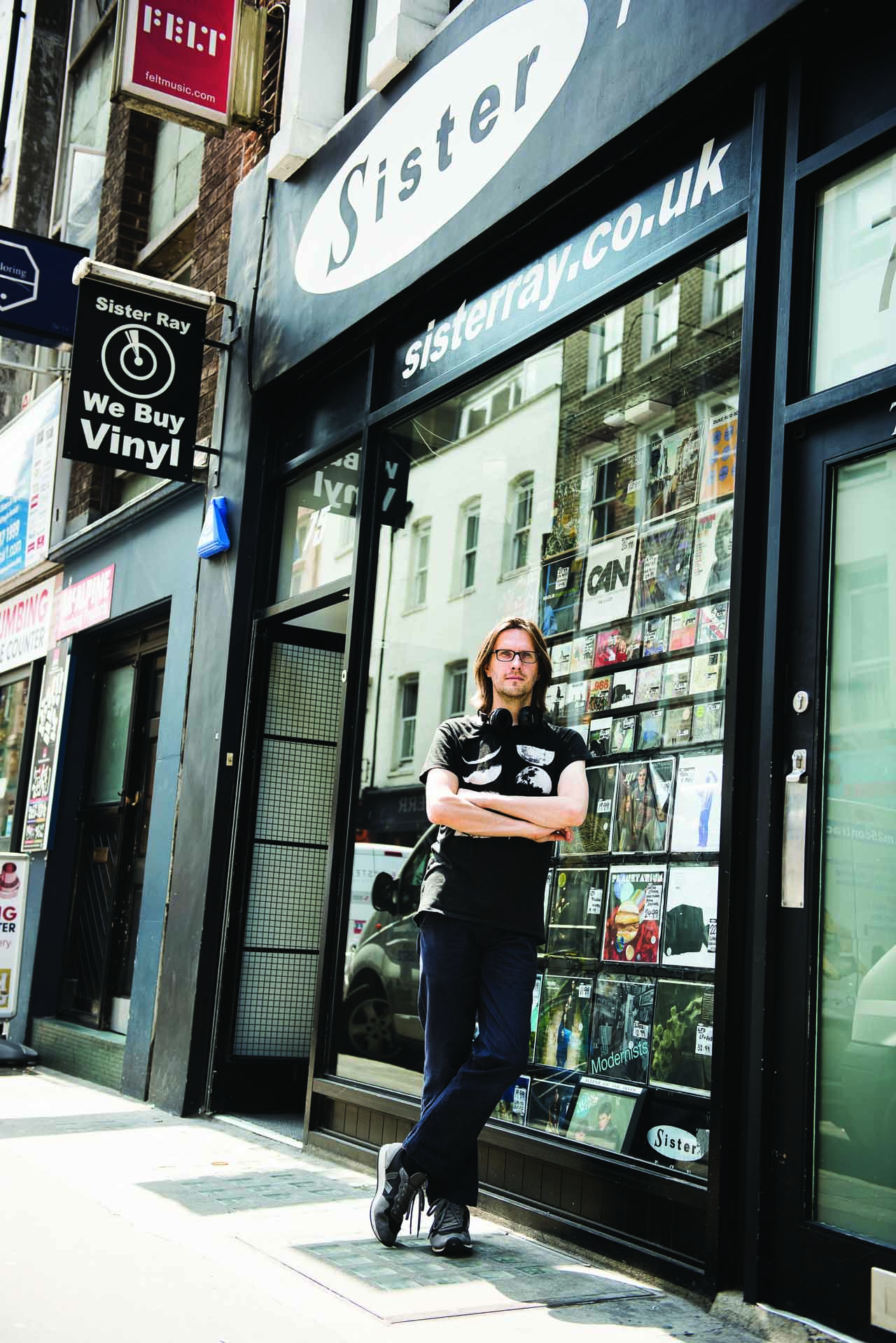
There’s a parallel here with Wilson’s own darker creations. Rader II, on second solo album Grace For Drowning, is a chilling riff on the life of American serial killer Dennis Rader, while Porcupine Tree’s In Absentia reportedly drew from British serial killer Fred West. Admittedly, Wilson’s new album To The Bone isn’t like this, but it’s still very focused on real life – hinting at themes including social disenchantment, growing older and parenthood.
“I write songs that are very much about the world as I see it,” he says. “ So I don’t write about space travel or hobbits. I’ve always written about life, relationships and things that resonate with me emotionally.”
And then of course there’s the music Wilson has released under pseudonyms, much of it without any lyrics at all. Nineties ambient/drone project Bass Communion was one, but there are others under names that nobody knows are actually him.
“Yeah. And I’m not going to tell you, so don’t ask,” he pre‑empts, sipping lime and soda in a quiet bar off Oxford Street, post-shopping. “But here’s the thing. I might do this weird album and release it under a pseudonym, and I know it’s not going to sell over a hundred copies, because the music industry works on brand names. There are artists that we like, we buy everything that artist does, sometimes we buy records that we end up not liking that much, but we still buy the next one because we’ve already invested.
“So brand is everything. There is that weight of expectation from your fans, management, record company… and I think sometimes it’s fun to release something without those expectations.”
One of the things people do expect from Steven Wilson is production control-freakery. He produced all his previous solo records alone (apart from The Raven, which had Alan Parsons as associate producer), and he’s gravitated towards a more composer-like role, employing virtuoso players to do the instrumental heavy lifting. On his new album he played much of the guitar, keyboards and bass himself, and brought in a co-producer – the jazz-rooted production/session heavyweight Paul Stacey, whose CV includes the Black Crowes, Oasis and Madonna. Having a partner in crime, and returning to more of a guitar-player role, was liberating.
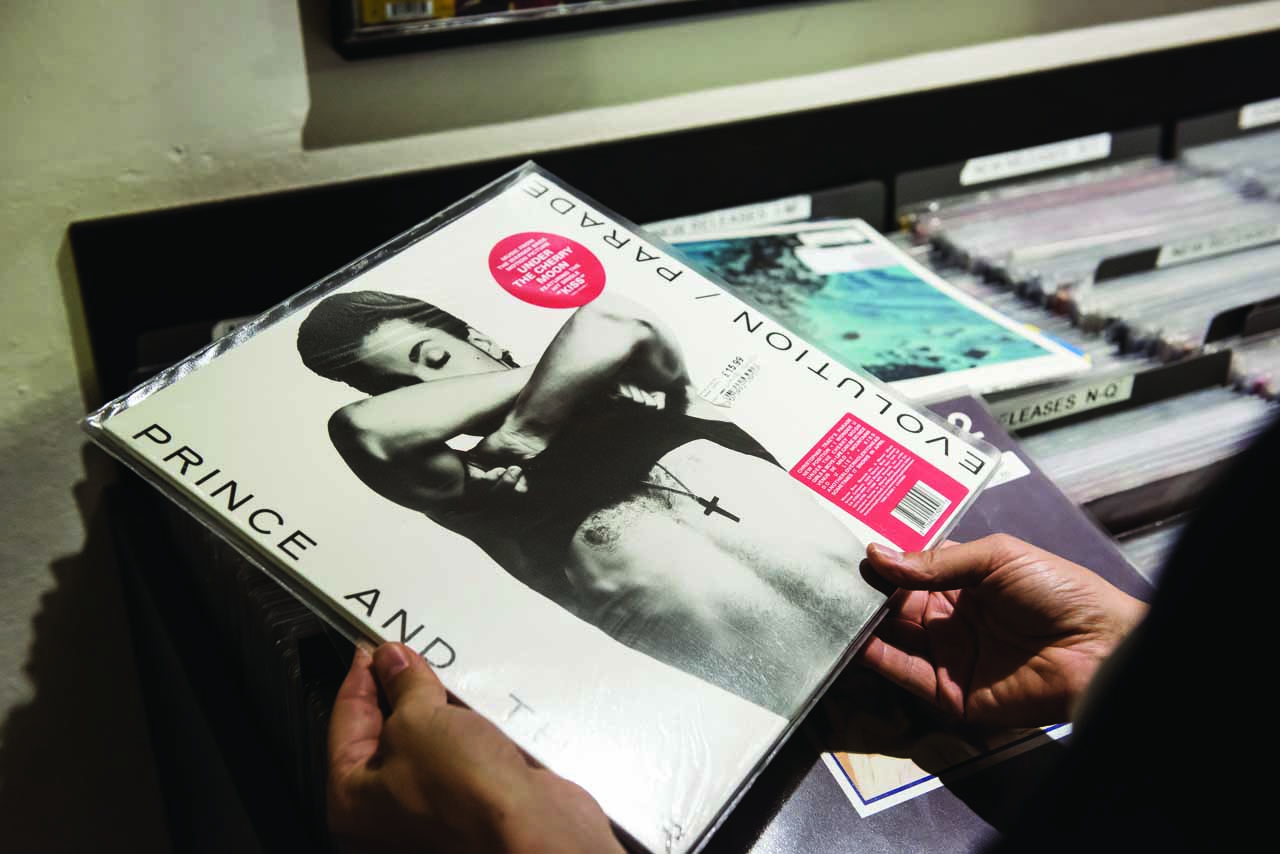
“There’s nothing he couldn’t say to me, or I couldn’t say to him. The last thing you want is a producer who’s afraid to be honest with you. And Paul’s reference points are nothing to do with genre. He’s done everything, so he has all that in his musical vocabulary.”
If most of To The Bone is pop with a small, tastefully progressive ‘p’, then Permanating – Wilson’s first proper pop song – is the rampantly upper-case, ELO-on-happy-pills version. He says he hasn’t read the YouTube comments (unsurprisingly they’re quite extreme), but welcomes the feather-ruffling.
“The most important thing for me with this record is that I feel I’ve done something different,” he says seriously. “That is what I admire in your Princes, Bowies and people like Miles Davis and Frank Zappa – that constant sense that they were evolving. I revel in upsetting people. I don’t mean that in a callous way, but if I’m upsetting people, I think that’s great because that means I’m confronting their expectations.”
Something else that’s different with his new album is that Wilson has put his own face on the cover and the publicity material – topless and slightly Bowie-esque on the former, splattered in paint on the latter. After years of weirder, conceptual campaigns, this makes quite a change in tone.
“I love the notion of the iconic pop star, not that I’m trying to rebrand myself as a pop star necessarily. But I am trying, I guess, to acknowledge to myself and my fan base that there is a strong personality behind the music.”
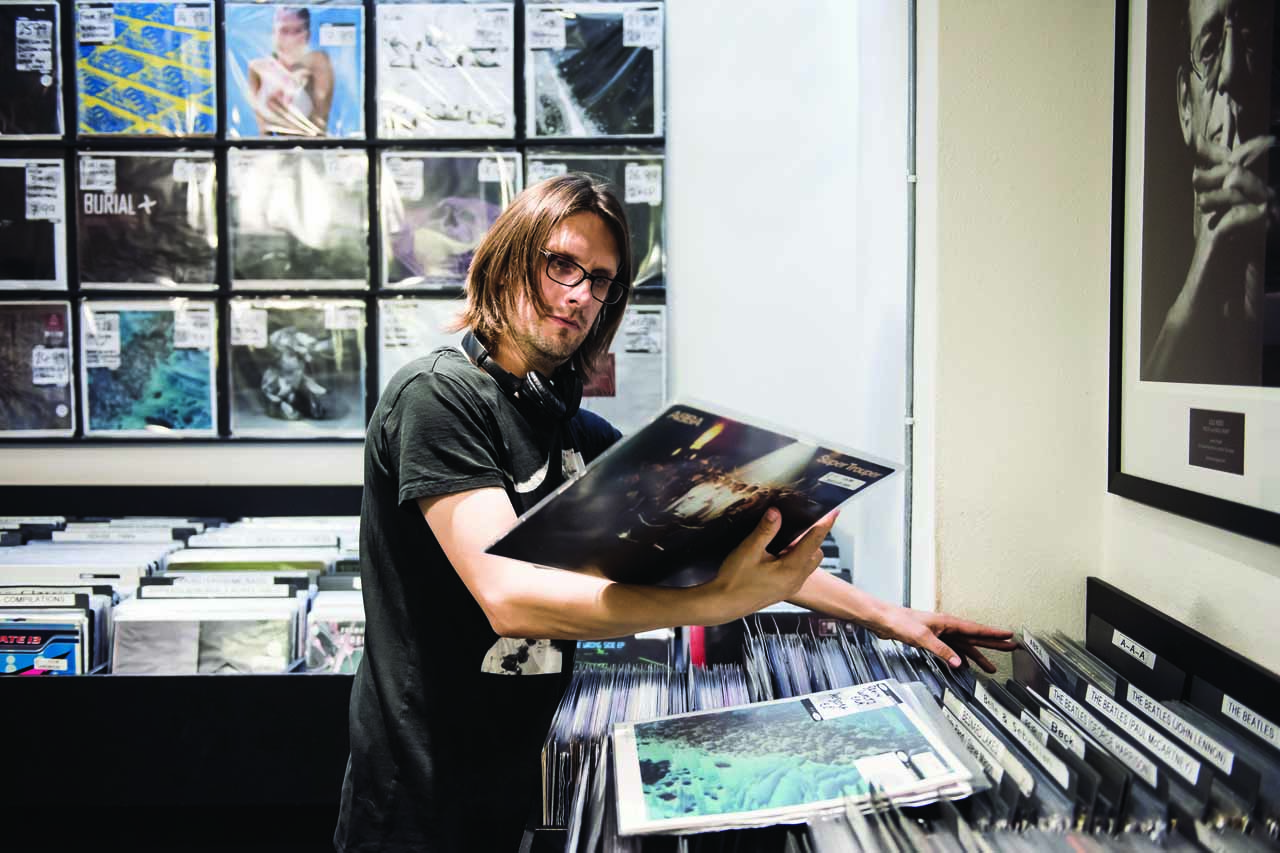
In a wider sense, Wilson hides a lot more than most. He lives in Hemel Hempstead, has a partner, a small dog and a fondness for White Russians (“I like to think The Dude in The Big Lebowski made it more of a male thing”), but otherwise his private life remains under wraps. He doesn’t post personal pictures online, with the exception of a recent Father’s Day snap of his late father. He uses social media only in a professional capacity. All of which hasn’t prevented him from selling out London’s Royal Albert Hall multiple times, or hitting the UK Top 20 with previous album Hand.Cannot.Erase. In fact maybe it’s helped, keeping the mystery alive.
“Prince was incredibly reclusive and shy,” he says. “Morrissey is another example. When they walk on stage they finally are able to be themselves and connect with other people. It’s almost like they need to feel the love of an audience.”
Would you put yourself in that category? “Not to the extent of those guys. Those guys were fucked up. I’m not that fucked up. But these days when I walk on stage, I know that the audience are on my side. It helps a lot, because you know there’s a certain passion for the music. I’m sure that’s what Prince and Morrissey felt too. These little shy guys walk on stage and suddenly everyone adores them, and you think: ‘I can be a pop star, the other me – I can be that person inside of me.’ I think there’s a little bit of that going on with me.”
Although Wilson has done so much, there’s still plenty more he’d like to do, including work with Kate Bush, soundtrack a film (preferably something along the lines of the dreamy Under The Skin or Mulholland Drive), remix ABBA… For now, though, he’ll make do with another huge tour, once again employing the immersive visuals created by animation whizz/video collaborator Jess Cope.
“I think it’s going to be amazing,” he says. “I hope there’ll be people with their mouths open.”
It will be a gear change compared to his previous two solo tours, which had fans weeping (in a good way) at moments of emotional heft. Not that there won’t be any older material this time – fan favourites such as The Raven’s stirring, spine-tingling title track will most likely be part of the set.
“I think that’s one of the best songs I’ve ever written,” he says. “It’s one of those where I think: ‘How the fuck did I do that?’ So there’ll still be a chance for people to weep into their alcoholic beverage of choice.”
To The Bone is released on August 18 via Caroline International. Steven Wilson’s UK tour runs from March 15 until April 1 2018.

Checkout
With £50 of Classic Rock’s money burning a hole in his pocket, here’s how Steven Wilson spent it
“Did you honestly think I wouldn’t go over budget?” Wilson deadpans as we approach the checkout laden down with vinyl (whittled down from a long list). He ends up buying an extra record out of his own pocket. “I’ve tried not to be too predictable, though, and to try new things.”
Sister by Sonic Youth
“I have this reputation as someone that values very high production standards, very cinematic-sounding records. And I do love that, but at the same time I love lo-fi. Sonic Youth are amazing because they’re a rock band who also manage to sound like avant-garde experimental musicians.”
Only The Lonely by Frank Sinatra
“Many people claim that Frank Sinatra is the grandfather of the concept album, because from the forties he was making albums of themed songs. And this album is a good example. It has this very melancholic theme, which of course appeals to me… It’s difficult to imagine a better singer that the world of popular music has ever thrown up.”
Morning/Evening by Four Tet
“I do know a bit about this guy, Kieran Hebden. This is a fairly recent release, so I’m curious. And Robin [Wilson’s publicist] has pointed out that one track is twenty minutes long, so of course that instantly gets my attention.”
Cigarettes After Sex by Cigarettes After Sex
“I saw somebody compare them to [slowcore group] Red House Painters, who are one of my favourite bands. So I went online and listened to one of their tracks. It was so beautiful, and the guy has a very androgynous, almost asexual voice. It’s heartbreaking music, but with really interesting, almost kitchen-sink-type lyrics.”
Aescoba EP by Brainwaltzera
“In the store there was a sticker on this record saying: ‘Rumoured to be Richard D. James, Aphex Twin’. And that was good enough for me, because he’s done this before. I’ve been following him since the early nineties. He’s fascinating because he just doesn’t give a fuck, and I love people that don’t give a fuck.”
Steven Wilson - To The Bone album review
